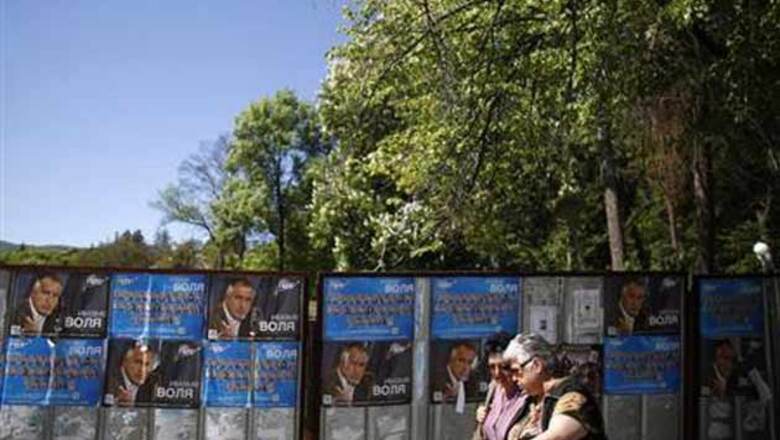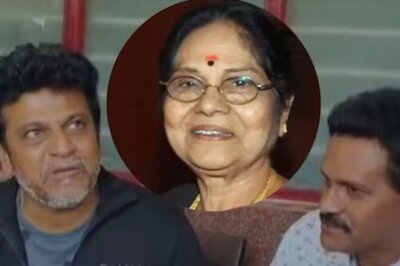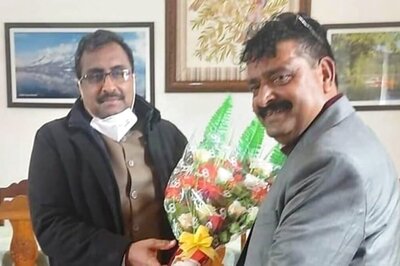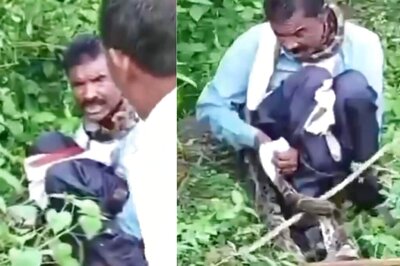
views
Sofia: Bulgaria has seized 350,000 fake ballot papers, prosecutors said on Saturday, a day before a parliamentary election that is likely to deliver no party a majority and more political turmoil in the EU's poorest country.
Prosecutors said the ballots were found at a printing house owned by the company of a local councillor from the centre-right GERB whose government resigned from office during protests against low living standards and corruption in February, but which still has a narrow lead in opinion polls.
"Over 350,000 printed ballots, that were ready for use in the parliamentary elections, were found in stores of a printing house in Kostinbrod," the prosecuting office in the capital, Sofia, said in a statement about Friday's seizure.
The interim government, which took over after GERB Prime Minister Boiko Borisov resigned, said it had received all 8.34 million ballots it had ordered and distributed them to polling stations already.
The owner of the printing shop based near Sofia, councillor Yordan Bonchev, denied any wrongdoing and said it had a licence to print ballots, which the government confirmed.
President Rosen Plevneliev said he expected the Central Election Commission to respond "to ensure the lawful democratic elections, including taking emergency measures if necessary", without giving details.
GERB called for an immediate halt to "speculation and political persuasion" on a day when campaigning was banned, but the accusation is likely to further dismay a population fed up with corruption, organised crime and low living standards.
Bulgaria struggles to supply running water and reliable electricity to some of its citizens, 2 million of whom have left since the 1989 fall of communism. In rural areas, many villages are run down and populated only by the elderly.
After a campaign marred by a wiretapping scandal, in which prosecutors said a senior GERB member had allowed ministry employees to commit crimes, and more mud-slinging than debate about policy, coalition talks are expected to be difficult and that may raise questions over governance and economic policy.
The Organisation for Security and Cooperation in Europe (OSCE) is monitoring the election and five parties - including the Socialists but not GERB - have organised a parallel vote count by an Austrian company, saying they are worried about possible fraud.
Voters are unhappy with a political class that has failed to present clear ideas on how to bring unemployment down from an 8-year high and increase an average monthly salary from 400 euros and turnout is expected to be low and some activists are planning protests for polling day.
Many businesses are unhappy with GERB, saying it failed to crack down on deep-rooted corruption and that many public tenders are still fixed. But its record in keeping debt low and confidence in a currency peg to the euro reassures investors.
Borisov, a former bodyguard, has based his campaign on keeping tight fiscal policy and continuing to overhaul Bulgaria's crumbling roads. That has mobilised GERB's core support but sidelined protesters who have demanded more spending - and if it returns to government, it could prompt more unrest.
The Socialists may cause some unease with investors because they oversaw a credit boom and bust while in office 2005-2009 and have promised more spending and job creation - pledges which have failed to convince many beyond their core support.
If no group can secure a majority, with the two main parties running neck-and-neck, Bulgaria will hold new a election - possibly in September - and will remain under an interim government, which has committed to keep debt low but would have limited powers.




















Comments
0 comment